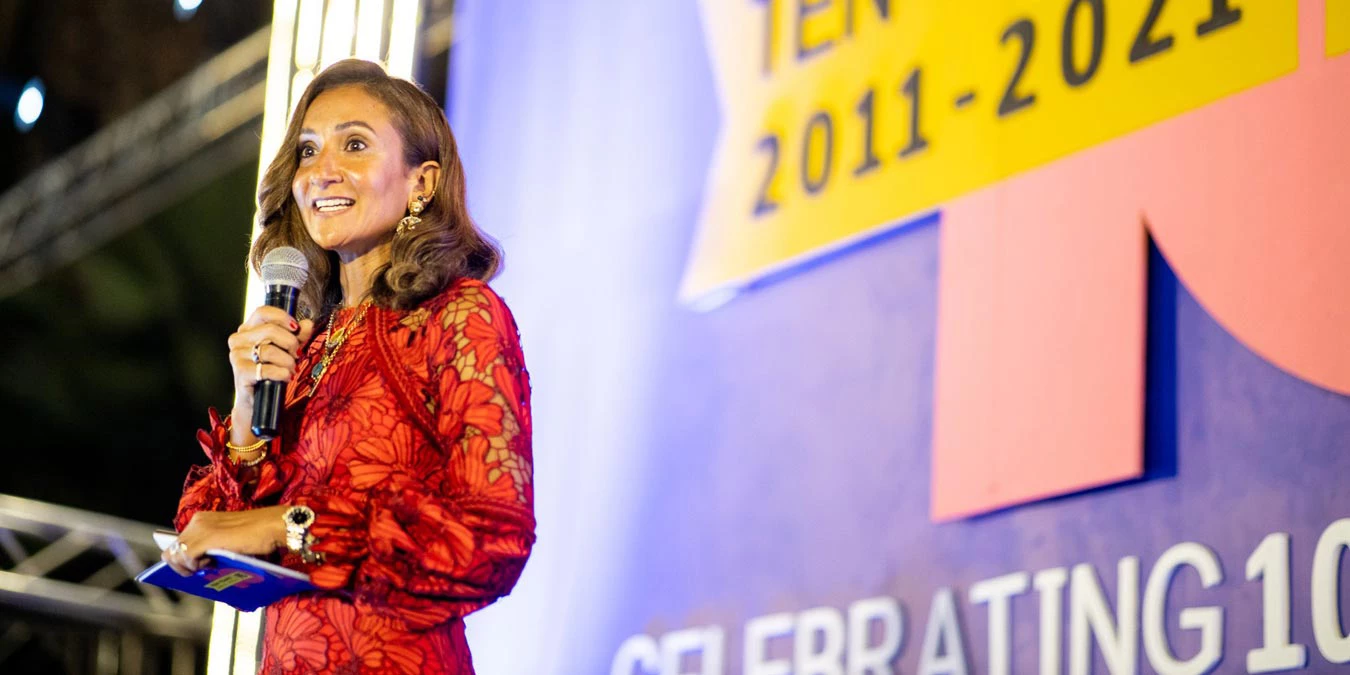Six years ago, entrepreneurs Rasha Rady and Doaa Aref wanted to improve health care in Egypt by creating an online service to deliver health products and prescriptions to clients, along with reminders and information about medications.
As a former cancer survivor, Aref knew there was an urgent need to help patients connect to pharmacy services. Too many chronically ill patients were unable to obtain their medications or keep track of their doses. “Our answer lied in tackling two key pillars of compliance: accessibility and affordability,” says Rady, a pediatrician with an academic background.
As female entrepreneurs in a developing market underserved by venture capital, Rady and Aref were ideal candidates for Flat6Labs Cairo, one of 19 funds supported by IFC’s Startup Catalyst (ISC) program. ISC aims to support early-stage startups by investing in incubators, accelerators, and seed funds to help create a pipeline of innovative companies with high-growth potential to receive later-stage investment. In short, ISC-supported funds help promising startups get a head start. Of the more than 2,800 entrepreneurs supported by ISC funds, one-fourth are women.
IFC is now doubling the size of ISC by $60 million, mainly to focus on nascent ecosystems in the world’s poorest countries from the International Development Association (IDA) and countries facing fragility and conflict-affected situations (FCS). The expanded program will focus on priorities such as female entrepreneurship and climate solutions. Incubators, accelerators and seed funds provide startups with much-needed capital, as well as the technical know-how, support, and mentorship to scale operations.
By supporting these early-stage funds, ISC helps nurture and prepare startups for later-stage investment, including from IFC’s new $225 million Venture Capital Platform which focuses on Africa, Middle East, Central Asia, and Pakistan. These areas of the world collectively received less than 2% of global venture capital funding in 2021.
Rady and Aref enrolled in Flat6Labs Cairo’s “bootcamp” for budding entrepreneurs, where they learned how to structure their new venture. As their idea became a workable business model, Flat6Labs provided them with seed money to fund it.
“What we loved about these founders was their passion and their understanding of a market niche from the consumer point of view,” says Dina el-Shenoufy, Flat6Labs’ Chief Investment Officer. “At first, they were a little shy speaking publicly, so it was remarkable to help them grow in confidence and expertise. Their golden value was a good idea and the determination to make it work.”
The entrepreneurs launched Chefaa, an artificial intelligence and GPS-enhanced platform offering medications and health products and 24-hour access to Arabic speaking pharmacists. When lockdowns during the COVID-19 pandemic drove up company growth by almost 300 percent, Rady and Aref turned again to Flat6Labs and IFC for support navigating their rapidly expanding company.
“IFC has been with us from the beginning, supporting us directly and indirectly,” says Rady. “Flat6labs plays a crucial role in the startup ecosystem, and their help can continue forever. All you need to do as a founder is ask.”
Chefaa now has partnerships with more than 1,000 pharmacies. Its 7.5 million users receive automated prescription refills, dosage reminders, and easy telephone access to pharmacists. Authorized caregivers and families can use the platform to monitor the prescriptions of vulnerable patients, especially those in remote locations. In addition, Chefaa offers affordable health and hygiene products to the public, including products for reproductive needs delivered discreetly to consumers using GPS technology.
Last year, the company won the first edition of the AfricaTech Awards, a pan-African initiative organized by IFC and VivaTech, Europe’s biggest tech event, to recognize the most innovative and impactful startups in Africa.
The more than 1,180 startups in 24 countries supported by ISC-invested funds have grown to raise a total of $4.5 billion in follow-on funding, becoming key drivers of job creation and digital innovation.
“They literally went miles to help us in opening lines of communications we didn't have access to before with potential partners,” says Rady. “IFC knowledge of markets has a global perspective that can help founders.”
Chefaa is expanding into Saudi Arabia, with plans to eventually scale up throughout the Arab-speaking world.
“Women entrepreneurs globally and especially in emerging markets have more difficulty accessing venture capital,” says William Sonneborn, IFC’s Global Director for Disruptive Technology and Funds. “ISC helps level the playing field by helping women-led businesses such as Chefaa grow and expand, while providing innovative solutions to address some of the biggest challenges of our times, including health care, climate change, and food security.”
Published in December 2022
